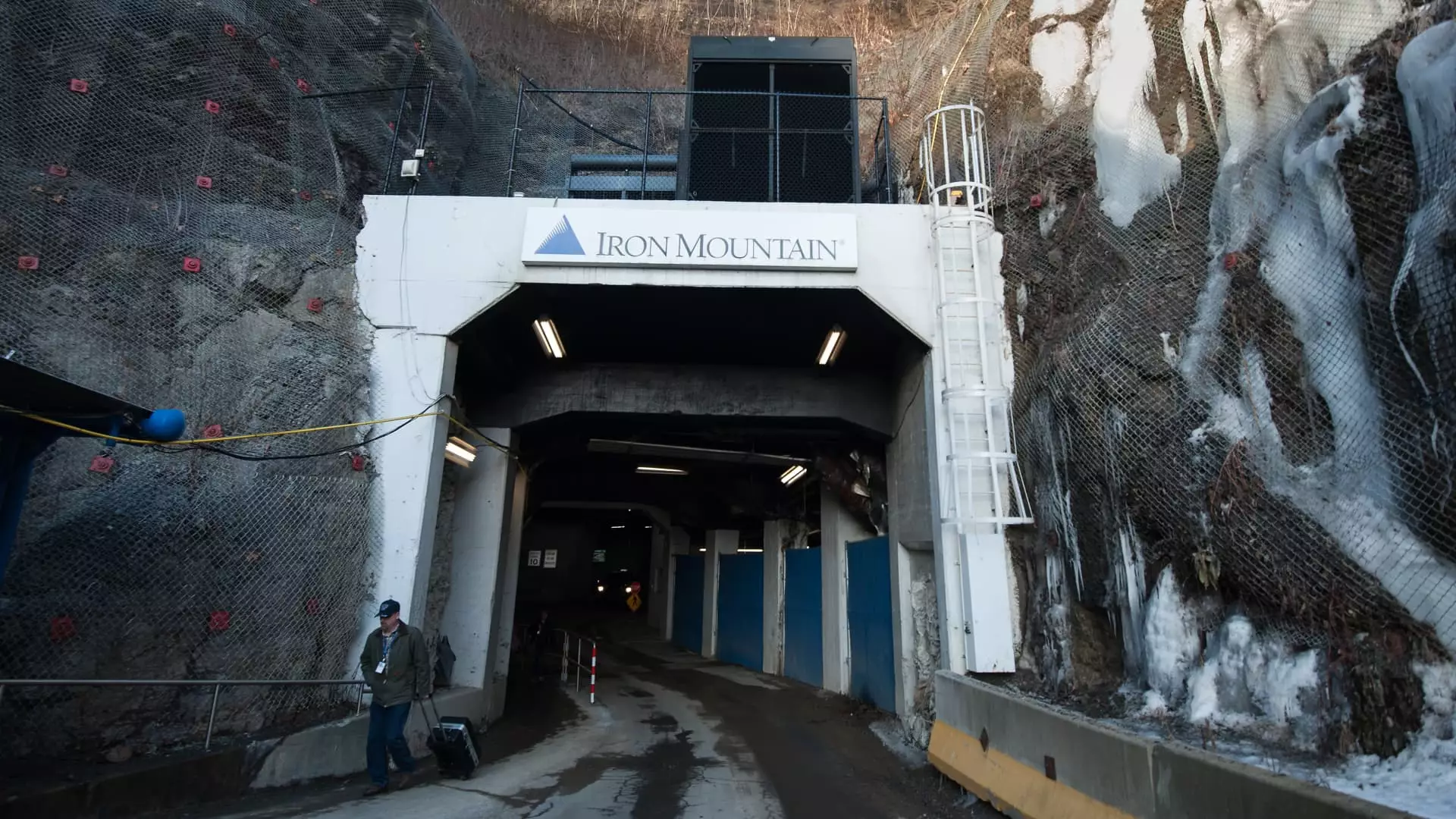The relationship between government operations and private enterprise has long been a topic of heated debate, particularly when it involves figures as polarizing as Elon Musk and a prominent company like Iron Mountain. Recently, Musk’s impromptu comments during a visit to the Oval Office with President Donald Trump brought the issue of governmental inefficiency to the forefront. Specifically, Musk targeted the current state of federal retirement paperwork storage, housed in what he described as a “time warp” limestone mine from the 1950s. This article seeks to delve deeper into the implications of Musk’s remarks, the subsequent stock market reactions, and the broader context of government efficiency initiatives.
Musk’s vivid description of the Pennsylvania limestone mine was more than just colorful commentary; it offered a stark critique of outdated government processes. His statement that the speed of the mine’s elevator governed the processing pace for federal retirements highlights a troubling image of the bureaucracy entangled in an archaic infrastructure. In an era defined by rapid technological advancement, such reflections are alarming, particularly for citizens who depend on timely processing of their retirement benefits. Musk’s use of the platform X—formerly known as Twitter—to share images of the mine, combined with his commentary, sparked widespread conversation about the inefficacy that can define large government operations.
The mine, managed by Iron Mountain, has been foundational for the storage of federal documents. However, Musk’s criticism calls into question whether a bureaucratic behemoth can effectively adapt to modern demands. The fact that this mine is responsible for processing a mere 10,000 retirement applications each month presents a compelling case for change. In a nation where speed and efficiency are increasingly expected, such bureaucratic hurdles could undermine public trust in governmental management.
In the aftermath of Musk’s comments, Iron Mountain’s leadership took to the public stage to reposition the narrative. CEO Bill Meaney framed the situation as an opportunity rather than a threat, suggesting that the shift towards digital transformation within federal agencies aligns perfectly with Iron Mountain’s business strategy. The irony lies in Musk’s critique inadvertently shining a light on the potential growth for corporations like Iron Mountain, which provides digital services that may ultimately streamline government functions.
Meaney pointed towards the $130 million in revenue derived from digital transformations, overshadowing the mere $10 million from physical document storage. This highlights a significant opportunity for growth and modernization that may not only benefit Iron Mountain but also improve the efficiency of governmental operations as a whole. With more than 200 federal agencies relying on Iron Mountain for document management, the stakes are high for both parties involved in this relationship.
The immediate market response to Musk’s statements was a decline in Iron Mountain’s stock, shedding over 10% in value within days. An investor’s reaction to potential threats to revenue is natural; however, the analysis from Wall Street suggests that this reaction might be overstated. Analysts like Wells Fargo’s Eric Luebchow characterized the move as an “overreaction,” asserting that the diversified nature of Iron Mountain’s revenue could insulate it from losses tied to its government contracts.
Furthermore, even if the federal government opted to terminate contracts related to the mine, the potential financial repercussions may not be as dire due to contractual protections like termination fees. Such buffers could sustain Iron Mountain through any potential upheaval, placing its resilience into a broader context within the market’s expectations.
Musk’s critique, while sharp, may inadvertently offer a roadmap for future interaction between public entities and private corporations. His emphasis on efficiency compels both sectors to explore modernization and innovation continually. As Trump’s administration continues to advocate for reduced government spending, companies partnering with federal agencies may need to demonstrate agility and adaptability to survive potential cuts or re-evaluations of existing contracts.
Ultimately, Elon Musk’s outspoken criticism in the Oval Office was not just about a single company or a solitary government inefficiency; it served as a clarion call for re-evaluating how both sectors can work together to forge an upgraded operational landscape. If Musk’s comments underscore anything, it is the critical imperative for future collaboration focused on innovation, efficiency, and modernization—a collaborative effort that has the potential to reshape the government’s relationship with corporate America in significant ways.

